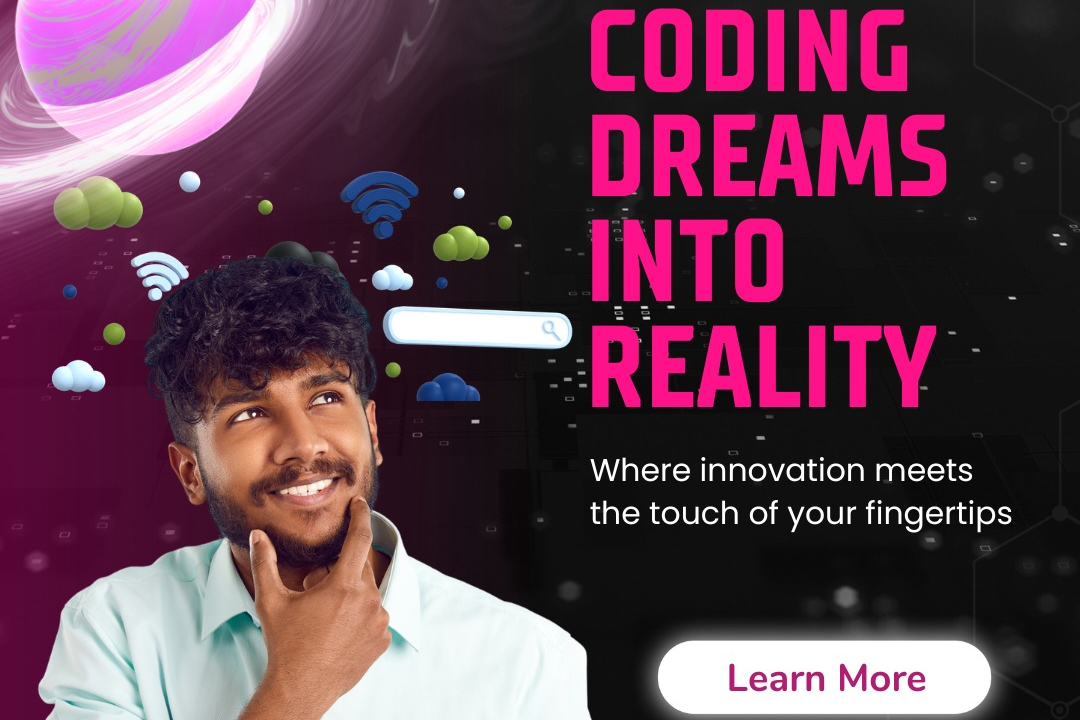React Native Vs Flutter
React Native and Flutter are powerful frameworks for building cross-platform mobile applications, ea
React Native Vs Flutter
React Native and Flutter are two leading frameworks for cross-platform mobile app development, each offering unique advantages. React Native, powered by JavaScript, allows developers to create native-like mobile applications using a single codebase, making it easier to maintain and scale projects while leveraging existing web development skills. In contrast, Flutter, built on Dart, offers an expressive and flexible UI toolkit with its rich widget library, enabling the creation of visually stunning applications with high performance. Both frameworks facilitate rapid development and reduce the time to market, making them invaluable resources for businesses looking to reach a wider audience across different platforms efficiently. Choosing between React Native and Flutter largely depends on the specific needs of the project and the familiarity of the development team with the respective languages and tools.
To Download Our Brochure: Download
Message us for more information: Click Here
React Native and Flutter are two leading frameworks for cross platform mobile app development, each offering unique advantages. React Native, powered by JavaScript, allows developers to create native like mobile applications using a single codebase, making it easier to maintain and scale projects while leveraging existing web development skills. In contrast, Flutter, built on Dart, offers an expressive and flexible UI toolkit with its rich widget library, enabling the creation of visually stunning applications with high performance. Both frameworks facilitate rapid development and reduce the time to market, making them invaluable resources for businesses looking to reach a wider audience across different platforms efficiently. Choosing between React Native and Flutter largely depends on the specific needs of the project and the familiarity of the development team with the respective languages and tools.
Course Overview
The “React Native vs Flutter” course provides an in-depth comparison of two prominent frameworks used for cross-platform mobile app development. Participants will explore the core concepts, features, and advantages of each framework, learning how to leverage their unique capabilities to build high-quality applications. The course covers critical aspects such as performance, UI design, development efficiency, and community support, enabling developers to make informed decisions about which framework suits their project needs. Through real-time projects and hands-on exercises, learners will gain practical experience in implementing both React Native and Flutter, equipping them with the skills necessary to excel in modern mobile app development. Engage in discussions about best practices and industry trends, ensuring a comprehensive understanding of the evolving landscape of mobile technologies.
Course Description
The “React Native vs Flutter” course offers a comprehensive exploration of two leading frameworks in mobile app development. Participants will delve into the fundamental principles, strengths, and weaknesses of React Native and Flutter, gaining insights into their architectures, performance metrics, and community support. With a focus on practical application, the course includes hands-on projects that allow learners to build real-world mobile applications using both frameworks. By the end of the course, students will have a clear understanding of which framework best fits their development needs, enhancing their versatility and marketability in the ever-evolving tech landscape.
Key Features
1 - Comprehensive Tool Coverage: Provides hands-on training with a range of industry-standard testing tools, including Selenium, JIRA, LoadRunner, and TestRail.
2) Practical Exercises: Features real-world exercises and case studies to apply tools in various testing scenarios.
3) Interactive Learning: Includes interactive sessions with industry experts for personalized feedback and guidance.
4) Detailed Tutorials: Offers extensive tutorials and documentation on tool functionalities and best practices.
5) Advanced Techniques: Covers both fundamental and advanced techniques for using testing tools effectively.
6) Data Visualization: Integrates tools for visualizing test metrics and results, enhancing data interpretation and decision-making.
7) Tool Integration: Teaches how to integrate testing tools into the software development lifecycle for streamlined workflows.
8) Project-Based Learning: Focuses on project-based learning to build practical skills and create a portfolio of completed tasks.
9) Career Support: Provides resources and support for applying learned skills to real-world job scenarios, including resume building and interview preparation.
10) Up-to-Date Content: Ensures that course materials reflect the latest industry standards and tool updates.
Benefits of taking our course
Functional Tools
1 - React Native
React Native is a framework developed by Facebook for building mobile applications using JavaScript and React. It allows students to create natively rendered applications for both iOS and Android platforms using a single codebase. The course focuses on understanding components, navigation, and styling in React Native, ensuring that students can design intuitive interfaces and manage app state effectively. In addition, students will learn how to utilize the extensive library of third party packages available in the React ecosystem, enhancing their application's functionality and capabilities.
2) Flutter
Flutter, developed by Google, is an open source framework for building natively compiled applications for mobile, web, and desktop from a single codebase. The course exposes students to Dart, the programming language used with Flutter, emphasizing its unique features such as hot reload, rich widget collections, and customizable UI components. By mastering Flutter, students can develop visually stunning applications with smooth animations and high performance, making it a popular choice among developers for creating cross platform apps.
3) Visual Studio Code
Visual Studio Code is a lightweight, open source code editor that supports various programming languages and frameworks, including React Native and Flutter. The course introduces students to VS Code’s powerful features such as IntelliSense, debugging tools, and integrated terminal, which streamline the development process. Students will learn how to customize their coding environment and use extensions for React Native and Flutter development, making their programming experience more efficient.
4) Android Studio
Android Studio is the official integrated development environment (IDE) for Android application development. Students enrolled in the course will gain hands on experience with this tool, exploring its capabilities in designing layouts, managing app resources, and debugging applications. Understanding how to navigate Android Studio ensures that students can effectively test and deploy their mobile apps, maximizing the quality and performance of their projects on Android devices.
5) Xcode
Xcode is Apple's official development environment for building applications for iOS. The course covers how to set up and use Xcode for developing React Native applications on iOS devices. Students learn about the iOS simulator, interface builder, and other essential tools within Xcode, allowing them to test their applications in a real iOS environment. Mastery of Xcode aids in understanding platform specific features and ensures that the applications developed are optimized for Apple devices.
6) Git and GitHub
Git is a version control system that allows developers to track changes in their code and collaborate on projects efficiently. The course emphasizes the importance of Git in managing React Native and Flutter projects, teaching students how to handle version control, branching, and merging code. GitHub, a web based platform for version control and collaboration, will also be explored, enabling students to showcase their work, contribute to open source projects, and collaborate effectively with other developers. Mastering these tools equips students with critical skills for professional development environments.
7) APIs and Networking
Understanding how to interact with APIs is crucial for mobile app development. This course segment covers the principles of RESTful APIs, how to make network requests using libraries such as Axios and Fetch in React Native, and the built in HTTP client in Flutter. Students will learn how to handle JSON data, authenticate users, and manage asynchronous operations in a mobile environment, enabling their applications to communicate effectively with backend services.
8) State Management
Managing the state of an application is a key concept in mobile development. The course delves into various state management techniques in both React Native and Flutter, including Context API, Redux, and MobX for React Native, and Provider and Riverpod for Flutter. By mastering state management, students will be able to create applications that respond seamlessly to user interactions and perform efficiently.
9) User Interface (UI) and User Experience (UX) Design
Creating a compelling user interface is critical to the success of any mobile application. This course will teach students best practices in UI/UX design, focusing on creating intuitive navigation, layout principles, and responsive designs across multiple screen sizes. Students will learn to apply frameworks like Material Design for Flutter and React Native Paper, ensuring that their applications not only function well but also provide a great user experience.
10) Testing and Debugging
Quality assurance is an essential part of the development process. This course component emphasizes the importance of testing in React Native and Flutter applications through unit testing, widget testing, and end to end testing. Students will learn how to use testing frameworks like Jest, Mocha, and Flutter’s built in testing library, alongside debugging techniques, to identify and fix issues, ensuring their applications are reliable and perform as expected.
11 - Deployment and App Store Management
Once development is complete, understanding the deployment process is crucial for bringing applications to users. This section covers how to build and package apps for Android and iOS, along with the submission processes to the Google Play Store and Apple App Store. Students will explore best practices for app optimization, user feedback handling, and version updates, providing them with the essential knowledge to successfully launch their applications.
12) Real Time Project Experience
One of the highlights of the course at JustAcademy is the opportunity for students to work on real time projects. This hands on experience allows students to apply their knowledge and skills in practical scenarios, simulating a real world working environment. Students will collaborate with peers, receiving feedback from instructors and gaining insight into how industry projects function from inception to completion.
13) Career Guidance and Portfolio Development
As students complete their courses, JustAcademy provides career guidance, helping students prepare for the job market. Students will receive advice on interview preparation, resume building, and how to effectively showcase their portfolios. The emphasis on real time projects enables students to present tangible examples of their work, making them competitive candidates in the job market.
14) Community and Networking Opportunities
Being part of the JustAcademy community means students have access to a network of fellow learners, instructors, and industry professionals. Engaging in community discussions, attending networking events, and participating in webinars are valuable opportunities for personal and professional growth, fostering connections that can lead to future collaborations and job opportunities.
15) Continuing Education and Advanced Courses
Technology evolves rapidly, and staying updated is vital for any developer. JustAcademy offers continuing education options and advanced courses for students wishing to deepen their knowledge in specific areas or explore emerging technologies. This focus on lifelong learning ensures that students remain competitive and adept in the ever changing landscape of mobile app development.
Browse our course links : Click Here
To Join our FREE DEMO Session: Click Here
This information is sourced from JustAcademy
Contact Info:
Roshan Chaturvedi
Message us on Whatsapp: Click Here
Email id: Click Here
Native Modules In React Native










